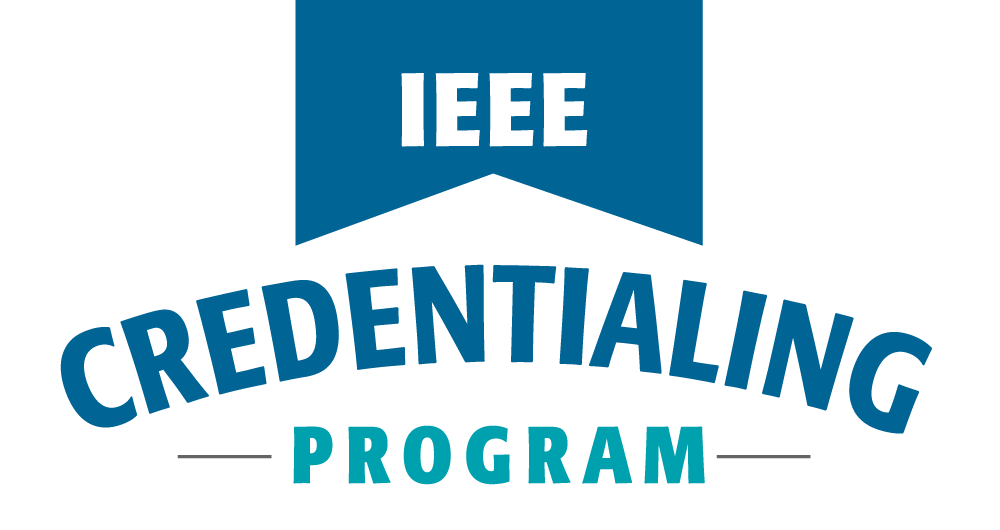Accelerate Your Career in 3 Easy Steps
Stand out from the crowd with industry-leading certificates that equip you with advanced skills and knowledge for career advancement. Even more, IEEE will be providing Professional Development Hours (or CEU) credits for this course.
Once you’ve completed your one-time registration to the program, click on each class day below that you are interested in to enroll. We’ve designed this sign-up process to be quick and simple in respect to your busy schedule. If you have any questions, we’re here for you!

Over 2,000 Certificates Awarded!
Welcome to DigiKey Continuing Education Center
Accelerate your knowledge in multiple technologies with the DigiKey Continuing Education Center, presented by Design News. Explore microcontrollers, sensors, wireless, power, and lighting, all from the convenience of your lab or office. Our expert lecturers lead interactive tutorials, allowing you to engage, collaborate, and access valuable learning materials. Even if you can’t attend live, archived courses are available. Plus, IEEE will be providing Professional Development Hours (or CEU) credits for this course.
Upgrade your skills and stay ahead in the world of design engineering today.
STMicro has FreeRTOS capability built into its STM32CubeIDE. This lecture series will detail the steps that are necessary to roll FreeRTOS into a microcontroller application. FreeRTOS is designed to run on small resource-restrained microcontrollers. With that, the target microcontrollers will be low-cost units that are found on STMicro’s NUCLEO development boards.
The course would explore how embedded developers can leverage C++ to modernize their firmware and improve long-term maintainability, scalability, and quality. We’d start by looking at the advantages C++ offers over C, such as stronger type checking, modular design, and reusable abstractions, while addressing concerns around performance and resource use. From there, we’d walk through practical ways to introduce C++ into embedded systems, starting with simple enhancements like namespaces and classes, and then moving into object-oriented design, templates, and modern C++ techniques that promote safer, more robust code.
We would also cover best practices for blending C++ with existing C codebases, working directly with hardware registers, and writing efficient drivers and components that meet real-time requirements. Examples would demonstrate how to use RAII for memory safety, apply design patterns for cleaner architectures, and ensure portability across toolchains. Attendees would walk away with a clear roadmap for adopting C++ in embedded projects—incrementally, pragmatically, and with confidence that their systems can meet both technical and business demands.
CEC participants will learn the basics of electronic sensor technologies like magnetometers, temperature, compass, and light using the Arduino Nano 33 BLE Sense platform. Participants will learn how to aggregate physical stimuli using a smartphone or tablet for additional data analysis and experimentation. Bluetooth Low Energy (BLE) will be used to create and illustrate basic IoT concepts
The course would explore how to use the latest OpenMV hardware to deploy vision applications directly at the edge. We’d start by looking at the new N6 and AE3 boards, which integrate STM32 and Arm Cortex-M55 MCUs with onboard neural processors capable of running advanced models like YOLO in real time. From there, we’d walk through how to develop and deploy neural networks using MicroPython and the OpenMV IDE, covering model conversion, integration with peripherals, and balancing performance with power efficiency. Attendees would leave with a clear understanding of how to prototype and deploy AI-driven embedded vision systems using OpenMV’s low-power, high-performance platform.
Programmable Logic Controllers (PLCs) are industrial computers used to automate manufacturing facilities for industrial control of machines and processes. In this webinar course, CEC participants will learn the architecture and implementation of PLCs using the Arduino Opta and OpenPLC. The design of OpenPLC ladder diagrams and software installation on the Opta will be investigated through daily hands-on lab exercises presented in the webinar. The IEC 61131-3 Functional Programming Languages Standard will be explained and illustrated for developing ladder diagrams in the presentation.
Building a custom piece of hardware from scratch that targets Linux is no easy task. A better approach is to use a SOM (System On Module) that contains the MCU, DDR memory and power management circuitry. The SOM is then integrated into a custom board. This lecture series will walk through the process of interfacing a SOM with a custom board and adapting a Linux image to support the SOM/custom board hardware.
The course would explore how embedded developers can apply Test-Driven Development (TDD) to improve software reliability, maintainability, and confidence in their code. We’d start by looking at what TDD is and how its principles apply in resource-constrained environments, where real-time requirements and hardware dependencies often complicate traditional workflows. From there, we’d walk through how to structure code for testability, decouple hardware through abstraction, and use mocking frameworks to validate logic without requiring the target hardware.
We would then look at how to integrate TDD into a broader development cycle, combining it with CI/CD, regression testing, and coverage analysis to create a sustainable test culture. Examples would demonstrate how to write unit tests for drivers and application code, incrementally build features through test-first design, and measure quality improvements over time. Attendees would walk away with practical strategies for using TDD in embedded projects, enabling them to deliver more predictable, higher-quality firmware.
As the title implies, this lecture series will describe how to design and create GUIs for embedded devices using tools such as TouchGFX and B4J (Basic 4 Java). The GUI objects will target touch-enabled TFT displays that are native to the embedded device. GUI objects that run on a personal computer and directly control an embedded device will also be discussed.
This webinar course will take a research perspective using the Gemini Robotics Vision-Language-Action (VLA) model for Robot Embodied Intelligence as the guiding principle in prototyping intelligent machines. The ESP32 microcontroller, along with supporting electronic component materials, will allow participants to be engaged in building and experimenting with the VLA model. Code generation for virtual and physical modeling of kinematics and control using AI will be explored in this webinar.
I have looked at what it would take to use Eclipse and the RP2040. It can be done, but one would have to jump through hoops of fire to make it work. In my opinion, using Visual Studio Code is a much better option for the RP2040. There is a dedicated Visual Studio Code plugin for the RP2040 that allows for the building and debugging of RP2040 applications. I will abide by your decision.

This webinar will focus on modeling and physical construction of electronic controllers for robot actuators and drive systems. CEC participants will be engaged in using an ESP32 microcontroller and MicroPython to prototype robot actuators and drive systems. Electronic circuit interfaces and simulators, such as QSPICE, will be included to illustrate design and analysis approaches in constructing robot controllers during the webinar presentation.

IEEE Requirements
Registrants of the DigiKey Continuing Education Center, presented by Design News, are eligible to earn Professional Development Hours by fulfilling specified requirements.

